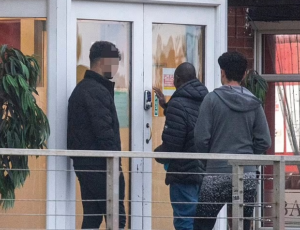Many consultants have supported hundreds of billions of dong after buying hotels that were having difficulty during the Covid-19 pandemic and then leasing them back to the government at a price to support other support programs.
Investors make millions of pounds a year from government coffers by buying poorly run hotels and converting them into accommodation for migrants.
An “opportunistic” company made £11 million (VND 317.9 billion) in profit after one year of acquiring four hotels. Another company will also make significant profits after purchasing 12 hotels in the past two years.
These companies took advantage of the lockdown policies implemented to fight the Covid-19 pandemic that hurt the tourism industry to buy hotels at low prices.
These hotels were later closed before being handed over to Serco, a private company responsible for providing accommodation for hundreds of migrants arriving in the UK every day.
While these companies are not doing anything illegal, their business model raises questions about the Home Office’s approach to tackling the immigration crisis.
H&H Hotels currently operates four seaside hotels in Skegness, Lincolnshire, providing accommodation for refugees.
Profits skyrocketed
The UK Home Office currently pays £150 a night for each immigrant’s accommodation, meaning H&H Hotels earns £11 million a year by renting out rooms to the government.
H&H Hotels has also set up companies to manage hotels in Sussex and Lancashire. In addition, the company operated a hotel in Norfolk and another hotel in London that was used to provide accommodation for immigrants, thereby augmenting their income.
H&H Hotels, founded in December 2021, is run by CEO Hassan Arif, a 32-year-old Egyptian who is a director of 17 companies.
According to Craig Leyland, leader of East Lindsey District Council (Lincolnshire), companies such as H&H Hotels have purchased many such hotels across the country, representing opportunistic investments. “They feel that the government is putting a lot of money into this, and within 1-2 years, their investments have yielded very good returns. As a council leader, I completely understand that The Home Office is under huge pressure to solve this problem. My problem is that processing refugees takes too long,” he said.
Another businessman, Na’im Anis Payman, 28, has also bought property in Skegness, including at least 12 hotels in the past two years, with at least three of them being used to house children. Refugees. Payman declined to comment except to confirm that he was not being paid £150 a night per migrant at his hotels.
Another hotelier said the Home Office had offered to pay £1.5m a year to accommodate migrants, compared with a normal annual profit of just £57,000.
Official figures show there are currently nearly 50,000 refugees staying in 140 hotels across the UK, at a cost of £6.8 million a day.